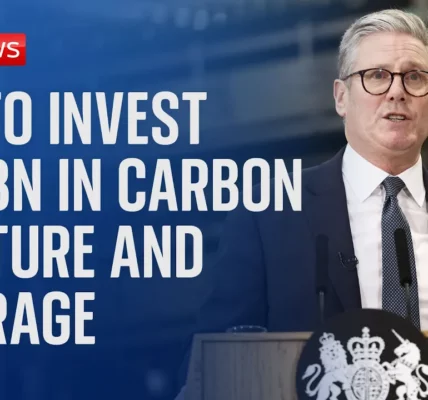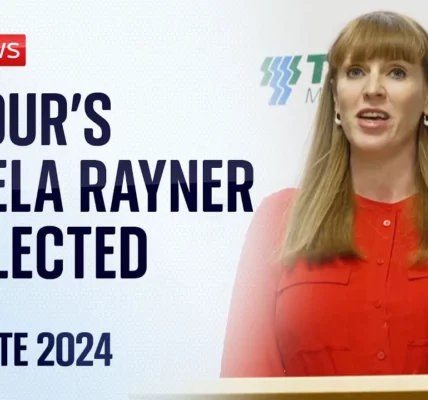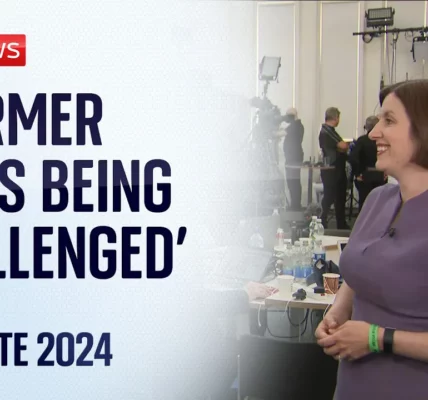Oasis Tickets: The Frustration of Dynamic Pricing and Government Response

This article delves into the recent uproar over ticket prices for Oasis concerts, highlighting the issues of dynamic pricing, consumer protections, and the involvement of the UK government in addressing these concerns.
Introduction
The excitement surrounding the return of Oasis has been overshadowed by widespread frustration over ticket pricing practices. Fans eagerly awaited the opportunity to secure their seats, only to find themselves facing exorbitant prices that rose dramatically during the purchasing process. This situation has sparked a nationwide conversation about dynamic pricing and its implications for music lovers, prompting the UK government to take action.
The Frustration of Fans
Many fans across the UK experienced a rollercoaster of emotions as they attempted to purchase tickets for the highly anticipated return of Oasis. The initial ticket prices were set at approximately £48, a reasonable figure for a live concert. However, as fans queued for hours, they were met with shocking price increases, with tickets eventually selling for as much as £355.
Understanding Dynamic Pricing
Dynamic pricing is a strategy commonly employed in various industries, including ticket sales, where the price of a product fluctuates based on demand. While this practice has been prevalent in the United States for some time, it has recently made its way to the UK, causing confusion and dissatisfaction among concert-goers.
Government Response
In light of the public outcry, the UK government has decided to intervene. Labor’s manifesto promised greater protections for consumers against unfair pricing practices. The Culture Secretary, Lisa Nandy, has announced that the issue of dynamic pricing will be included in a government review aimed at enhancing consumer protections for ticket resales.
- Increased transparency regarding ticket pricing.
- Evaluation of queuing systems that contribute to inflated prices.
- A focus on protecting fans from excessive ticket costs.
The Role of Ticketmaster and Artists
Ticketmaster, the primary ticketing platform for Oasis, has defended the practice of dynamic pricing, claiming that the pricing structure is determined by the artists and their management, not the ticketing service itself. They argue that dynamic pricing helps discourage ticket scalping, which can lead to inflated resale prices.
Comparative Analysis with Other Countries
Interestingly, in Ireland, the resale of tickets for profit is illegal, yet dynamic pricing has still been observed with the recent Oasis ticket sales. This raises questions about the legality and ethics of such practices globally.
Consumer Sentiment
The sentiment among consumers has been overwhelmingly negative. Many fans feel that being subjected to escalating prices while trying to purchase tickets is akin to being at a supermarket deli where prices rise the longer you wait. This analogy highlights the frustration of fans who feel trapped in a system that exploits their eagerness.
The Bigger Picture: Impact on the Music Industry
The discussion surrounding dynamic pricing extends beyond just Oasis and Ticketmaster. It reflects a larger issue within the music industry regarding accessibility and fairness for fans. As ticket prices soar, many potential concert-goers are left priced out of experiencing live music.
Potential Solutions
To address these challenges, industry stakeholders must consider various solutions, such as:
- Regulating dynamic pricing practices to ensure fair access for all fans.
- Implementing fixed pricing models for certain events to prevent excessive inflation.
- Encouraging transparency in ticket pricing to build trust with consumers.
Conclusion
The frustration surrounding Oasis ticket prices has ignited a crucial conversation about dynamic pricing and consumer protections in the music industry. As the government takes steps to address these concerns, it is essential for fans to remain informed and engaged. The future of ticket sales may depend on the outcomes of these discussions, and concert-goers should advocate for fair practices that prioritize their interests.
For more insights on ticketing practices and consumer rights, check out our related articles on ticket resale regulations and consumer protection in entertainment.
“`




